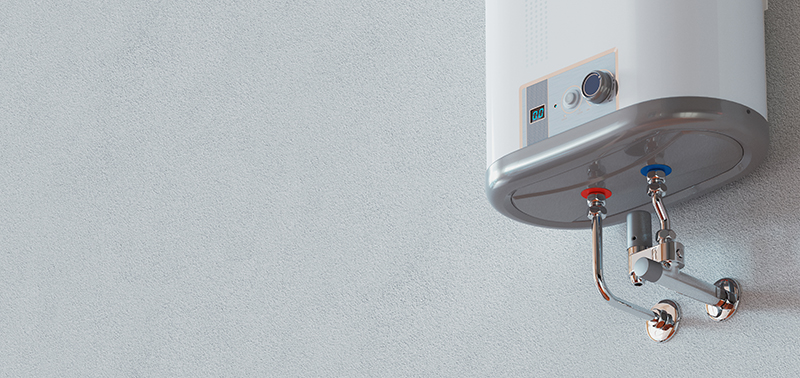Tankless water heaters provide hot water instantly without storing heated water, unlike their tanked counterparts. The biggest difference between tank and tankless water heaters is that tankless models don’t waste energy by constantly reheating water. They heat water as it flows through the unit. An electric tankless water heater is typically smaller and easier to install. A gas tankless water heater tends to heat faster and can handle higher flow rates.
Minerals can build up inside either model, reducing efficiency, increasing energy costs, and even damaging the system. Regular cleaning of your tankless water heater is essential to maintaining its performance, extending its lifespan, and keeping your energy bills lower.
It is important to look for signs that your water heater may need to be cleaned. Blocked water flow and mineral buildup can cause low water pressure and unusual sounds, like popping or gurgling. Many models also display error codes when mineral deposits accumulate or maintenance is required.
How to Clean Your Tankless Water Heater
Cleaning a tankless heater requires a submersible pump, two hoses, a descaling solution or white vinegar, a bucket, and a wrench. If you are looking to clean your tankless water heater yourself, refer to the following steps:
- Turn off the unit.
- Close the water valves.
- Connect hoses and a pump to the cleaning port on your unit.
- Use a descaling solution to circulate the system for 45 minutes to dissolve mineral deposits.
- After the solution has cycled, flush the system with clean water.
- Reconnect all connections, turn on the power or gas, and check that the heater works properly.
How Often Should You Clean Your Heater?
To keep your water heater running efficiently, you should clean it at least once a year. If you have hard water, you may want to clean it twice a year instead.
Before cleaning, turn off the power or gas supply. Follow manufacturer instructions before handling cleaning solutions and wear gloves when necessary. If you’re unsure about DIY cleaning, hire a professional.
Benefits of Cleaning Your Water Heater
Regular cleaning provides numerous benefits, including energy savings, a longer lifespan for the unit, a lower bill cost, and consistent hot water.
If your heater isn’t working correctly after cleaning, check for blocked pipes, verify that the power or gas is restored, and ensure the unit is reassembled correctly. If it still isn’t working, seek help from an expert to get your system running smoothly again.
Conclusion
Maintaining your water heater is vital to ensure it runs well. If you’re uncomfortable tackling the issue yourself or want to guarantee that the job is done right, let the Thornton Heating Service experts handle it for you. Contact us today to schedule your professional tankless water heater cleaning and keep your home’s hot water flowing smoothly!

